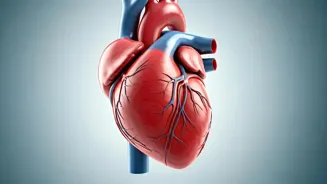Healthy Dietary Choices
The cornerstone of artery health is a balanced diet. Consider including foods rich in fiber, such as fruits, vegetables, and whole grains. These items
aid in lowering cholesterol levels by binding to it and removing it from the body. Incorporating foods high in omega-3 fatty acids, like fatty fish (salmon, mackerel) or flaxseeds, is also beneficial. These fatty acids possess anti-inflammatory properties that help minimize the formation of plaque in the arteries. Moreover, decreasing your intake of saturated and trans fats, commonly found in processed foods and fried items, is crucial. Opting for lean proteins and preparing meals with heart-healthy oils, like olive oil, is also recommended. Regularly eating a diet rich in diverse nutrients offers a proactive approach towards maintaining healthy arteries and cardiovascular wellness, greatly reducing the risks of heart disease.
Embrace Regular Exercise
Physical activity plays a significant role in improving arterial health and overall wellness. Aim for at least 150 minutes of moderate-intensity exercise or 75 minutes of vigorous-intensity exercise weekly. Activities like brisk walking, jogging, cycling, and swimming are beneficial. Exercise helps reduce LDL (bad) cholesterol levels and increases HDL (good) cholesterol levels. This balancing act aids in decreasing plaque buildup in the arteries. Routine exercise also improves blood circulation, reducing blood pressure, and improving the function of the heart. Integrating exercise into your routine can involve joining a gym, signing up for fitness classes, or simply taking the stairs instead of the elevator. Consistency is vital, so find activities you enjoy and can stick to regularly for long-term health benefits and improved artery function. This commitment to regular exercise is an essential component in managing artery health and preventing cardiovascular issues.
Manage Stress Effectively
Chronic stress significantly impacts artery health, contributing to inflammation and increasing the risk of plaque formation. Implementing effective stress management techniques can help mitigate these effects. Practices like yoga, meditation, and deep breathing exercises can help regulate the nervous system, reducing the release of stress hormones that can constrict blood vessels. Engaging in hobbies, spending time in nature, or pursuing relaxation activities can also reduce stress levels. It's crucial to recognize your stress triggers and develop coping mechanisms. This could involve setting realistic goals, establishing healthy boundaries, or seeking professional support when needed. By prioritizing stress management, you can protect your arteries and promote overall well-being, creating an environment that supports better cardiovascular health and reduces the long-term impact of stress on your body.
Quit Smoking Immediately
Smoking is a major risk factor for heart disease and directly harms arteries. It damages the lining of blood vessels, promotes plaque formation, and reduces blood flow. Quitting smoking is one of the most impactful steps you can take to improve your artery health. The toxins in cigarette smoke can narrow the arteries and increase the risk of blood clots, leading to heart attacks and strokes. There are numerous resources to help quit, including nicotine replacement therapy, counseling, and support groups. Even reducing the number of cigarettes smoked per day can positively impact your health. Quitting smoking not only improves your arterial health but also enhances overall health and longevity. The benefits of quitting smoking start almost immediately, with decreased heart rate and improved blood circulation soon after the last cigarette, making it a critical step in maintaining a healthy cardiovascular system.
Stay Hydrated Consistently
Adequate hydration plays a vital role in maintaining healthy arteries and supporting overall cardiovascular function. Proper hydration helps maintain optimal blood volume and blood pressure, contributing to efficient circulation. Dehydration can thicken the blood, making it harder for the heart to pump and increasing the risk of blood clots. It is recommended to drink plenty of water throughout the day, especially before, during, and after exercise. Besides water, you can hydrate with other beverages, such as herbal teas or infused water. Staying hydrated also helps your body remove waste products and maintain healthy kidney function, which indirectly supports cardiovascular health. Being mindful of your fluid intake and ensuring you are consistently hydrated are simple but essential steps to support your heart and arteries. These hydration habits can play a crucial role in promoting overall well-being and lowering the risk of cardiovascular issues.














